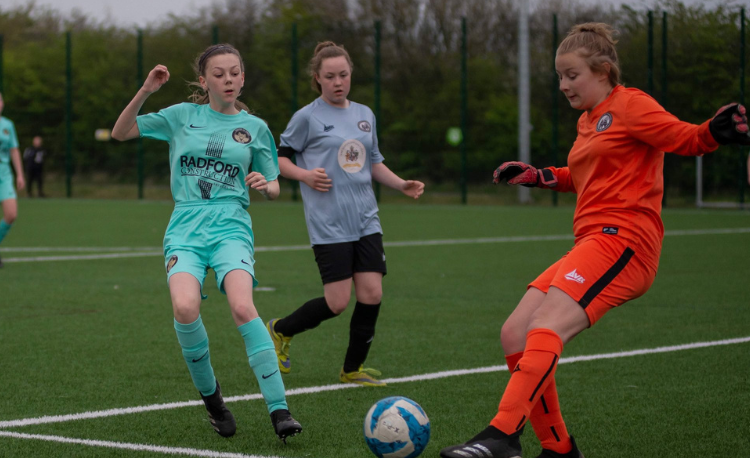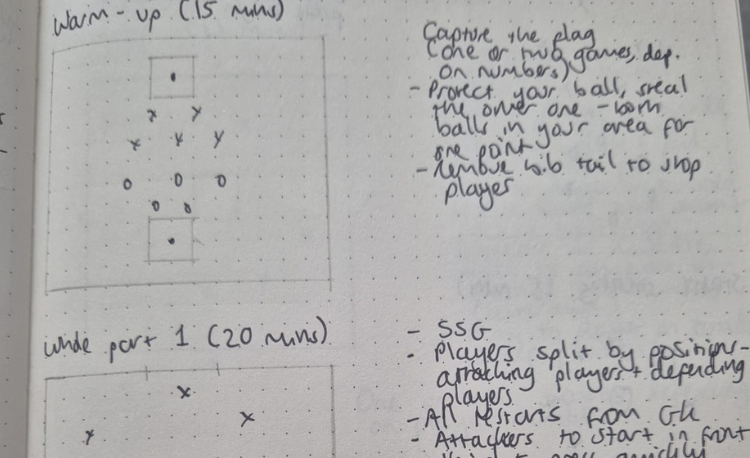The responsibilities of a team captain
From being a leader on the field and helping take the warm-up, to being a link between players and coaches, we look at what you can ask your skipper to do.
In soccer, a captain is widely known to be a leader within a group of players.
When it comes to what a captain actually does, though, it’s down to whatever you and your club, or team, decide.
Of course, the responsibilities of a captain will vary, with the age and stage of the players. The role is less intensive for younger players, and probably more involved for older ones.
Here, we share six ideas on the things you might ask your captain to do.
01 Matchday duties
There are some pretty standard tasks that every captain will do on a matchday – talk to the referee before kick-off, participate in the coin toss to decide which team gets to kick off, and choose which side of the pitch to start on.
If there are any on-field issues during the game, the referee is likely to talk to the captain about them, and they may be expected to be involved in any discussions between the referee and their team-mates.
The captain may also deliver, or give part of, any pre-match or half-time team talks.
02 On-field leadership
A captain may be encouraged to provide leadership on the pitch, which will likely include encouragement of and guidance for their team-mates.
It is important to note that this can be done in different ways – some captains may be loud, shouting their thoughts; others may prefer quiet words with team-mates; a few may simply want to lead by example.
03 Lead warm-ups and cool downs
Getting captains to lead simple activities, such as warm-ups and cool downs – both at training and on matchdays – is a great way to allow them to take directive leadership and to take the burden off you while you do something else, like set up your next activity at training, or chat to the opposition manager on a matchday.
If you are asking the captain to lead these activities, it is important to make sure they know what they are doing – talk them through a routine, or ask them to run one they have seen you do before.
04 Help you make decisions
A captain can be a good sounding board for you when making decisions.
It might be about what you are going to work on at your next training session, or what shape you are thinking of setting the team up in on your next matchday.
Even if you don’t ultimately go with what your captain says, just getting their opinion and insight can let them know you are in it together.
05 a communication link
This goes both ways. The captain can help you deliver messages to your other players, and help get messages from the players back to you.
Of course, there should always be a direct line between you and your players, but there may be times when you feel something is better communicated to your players via the captain, or when your players would prefer to speak to the captain about something, rather than coming to you.
06 Support with organisation
Whether it is assisting with getting players to submit their availability for the upcoming match, working out when and where to do a social or team-building activity, or deciding who is on kit-washing duty that week, the captain can help with a number of off-field activities.
It will only help them to further develop leadership skills required in other areas of life.
Related Files
Newsletter Sign Up
Coaches Testimonials

Gerald Kearney, Downtown Las Vegas Soccer Club

Paul Butler, Florida, USA

Rick Shields, Springboro, USA

Tony Green, Pierrefonds Titans, Quebec, Canada
Subscribe Today
Discover the simple way to become a more effective, more successful soccer coach
In a recent survey 89% of subscribers said Soccer Coach Weekly makes them more confident, 91% said Soccer Coach Weekly makes them a more effective coach and 93% said Soccer Coach Weekly makes them more inspired.
*includes 3 coaching manuals
Get Weekly Inspiration
All the latest techniques and approaches
Soccer Coach Weekly offers proven and easy to use soccer drills, coaching sessions, practice plans, small-sided games, warm-ups, training tips and advice.
We've been at the cutting edge of soccer coaching since we launched in 2007, creating resources for the grassroots youth coach, following best practice from around the world and insights from the professional game.







